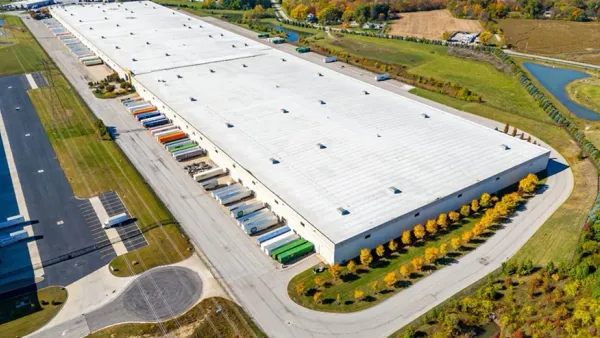Dive Brief:
- Mondelez has committed to sourcing 100% of its cocoa through its Cocoa Life program by 2025. The Cocoa Life program seeks to reduce deforestation and child labor from cocoa supply chains while also improving the welfare of cocoa farmers, according to a press release. Currently 43% of the company's cocoa meets this standard.
- Mondelez reports it has mapped and monitored 93,416 farms in order to watch for deforestation, according to its Cocoa Life 2018 Annual Report, released Tuesday.
- The company has previously pledged to reduce its factory emissions by 15% from 2013 levels by 2020.
Dive Insight:
In 2012, Mondelez pledged to spend $400 million by 2022 improving the environmental and social sustainability of the cocoa supply in Ghana, Côte d'Ivoire, Indonesia, India, the Dominican Republic and Brazil by increasing transparency in the cocoa supply chain and promoting self-sufficiency by spreading agricultural knowledge to growers. These two elements lead to a more stable cocoa supply with a lighter environmental impact, according to the company.
An important distinction to note is Mondelez is committing to cover its entire supply chain with the Cocoa Life program, but the program itself does not include a commitment to a 100% deforestation-free supply chain. The Cocoa Life program does involve extensive mapping and monitoring, so the corporation may be thinking that a closer, ground-level relationship is a better way to encourage good practices than no-tolerance standards. More carrot, less stick.
A major component of the Cocoa Life program is working directly with African cocoa farmers to increase yields and therefore decrease deforestation — working on the theory that when farmers make a good living on the land they have, they don't need to chop down trees to create more. In Ghana, the company estimates participating farms yielded 15% more than non-participants by enacting simple practices like weeding, pruning and planting shade trees.
"Our proprietary sustainability program Cocoa Life is simply 'how we do business' and is fully integrated into all of our sourcing decisions," Mondelez CPO Mark Dady said in the report.
Apart from sustainability, Mondelez is also working on the ground in Ghana to combat child labor on cocoa farms. The company is taking what many corporate social responsibility professionals call the "jurisdictional approach" — addressing the causes of child labor on the ground as opposed to relying on outside auditors. Mondelez's approach involves:
- Setting up a Child Protection Committee as a community liaison.
- Using government tools to support existing policies.
- Sharing data with local authorities.
- Empowering children to advocate for themselves.
"Success will not be found by acting alone, and this is why we are building a movement for lasting change and scaling our holistic approach through productive, collaborative partnerships," CEO Dirk Van de Put said in a statement. "We hope our encouraging results inspire more industry members to implement integrated approaches and broaden their impact at scale."
Hershey and Mars have taken recent strides toward a more sustainable cocoa supply chain, though Hershey's plans lack specifics so far. Mars has fully mapped its first tier of suppliers and pledged to rid its supply chain of deforestation by 2025.
This story was first published in our weekly newsletter, Supply Chain Dive: Procurement. Sign up here.














